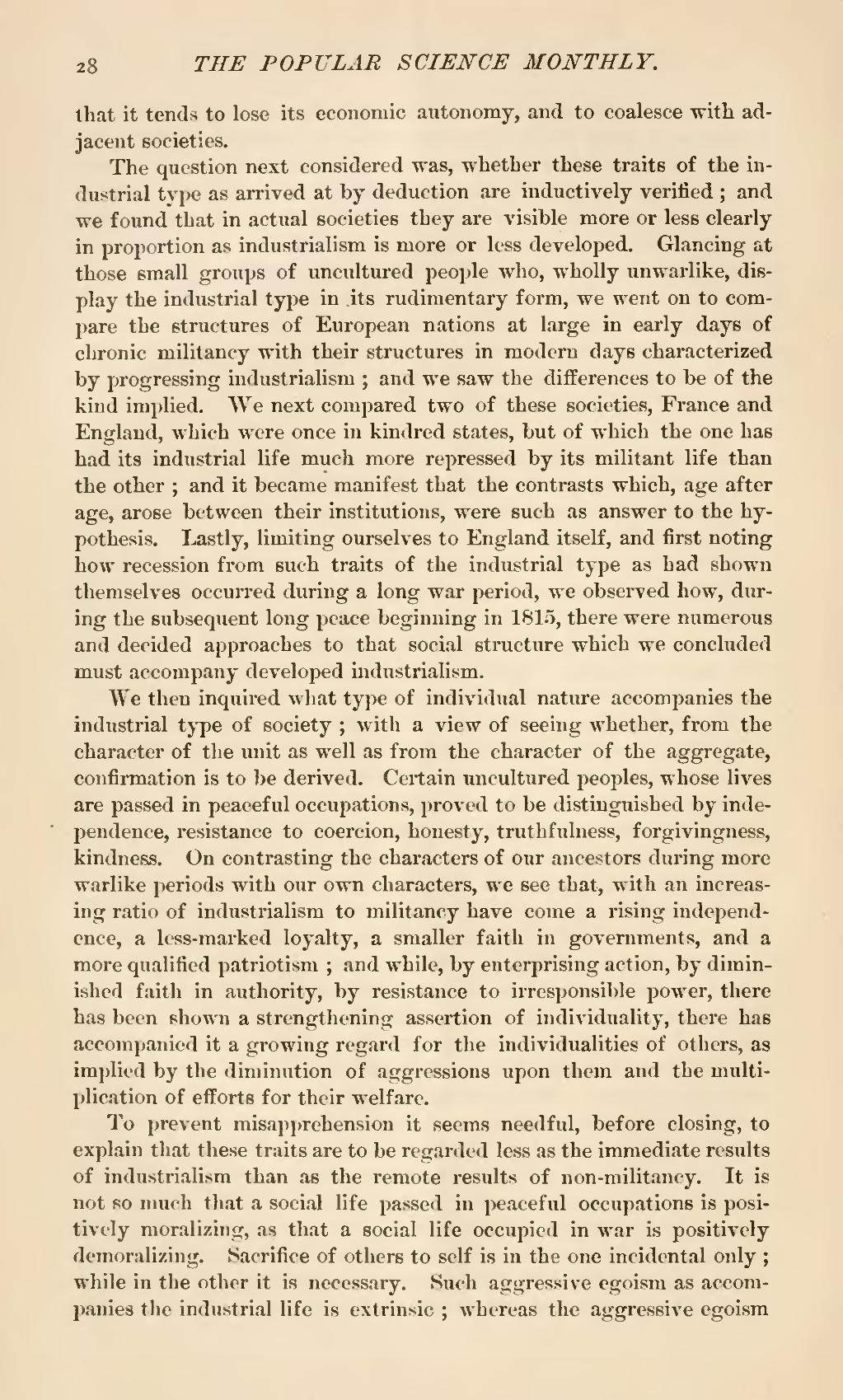that it tends to lose its economic autonomy, and to coalesce with adjacent societies.
The question next considered was, whether these traits of the industrial type as arrived at by deduction are inductively verified; and we found that in actual societies they are visible more or less clearly in proportion as industrialism is more or less developed. Glancing at those small groups of uncultured people who, wholly unwarlike, display the industrial type in its rudimentary form, we went on to compare the structures of European nations at large in early days of chronic militancy with their structures in modern days characterized by progressing industrialism; and we saw the differences to be of the kind implied. We next compared two of these societies, France and England, which were once in kindred states, but of which the one has had its industrial life much more repressed by its militant life than the other; and it became manifest that the contrasts which, age after age, arose between their institutions, were such as answer to the hypothesis. Lastly, limiting ourselves to England itself, and first noting how recession from such traits of the industrial type as had shown themselves occurred during a long war period, we observed how, during the subsequent long peace beginning in 1815, there were numerous and decided approaches to that social structure which we concluded must accompany developed industrialism.
We then inquired what type of individual nature accompanies the industrial type of society; with a view of seeing whether, from the character of the unit as well as from the character of the aggregate, confirmation is to be derived. Certain uncultured peoples, whose lives are passed in peaceful occupations, proved to be distinguished by independence, resistance to coercion, honesty, truthfulness, forgivingness, kindness. On contrasting the characters of our ancestors during more warlike periods with our own characters, we see that, with an increasing ratio of industrialism to militancy have come a rising independence, a less-marked loyalty, a smaller faith in governments, and a more qualified patriotism; and while, by enterprising action, by diminished faith in authority, by resistance to irresponsible power, there has been shown a strengthening assertion of individuality, there has accompanied it a growing regard for the individualities of others, as implied by the diminution of aggressions upon them and the multiplication of efforts for their welfare.
To prevent misapprehension it seems needful, before closing, to explain that these traits are to be regarded less as the immediate results of industrialism than as the remote results of non-militancy. It is not so much that a social life passed in peaceful occupations is positively moralizing, as that a social life occupied in war is positively demoralizing. Sacrifice of others to self is in the one incidental only; while in the other it is necessary. Such aggressive egoism as accompanies the industrial life is extrinsic; whereas the aggressive egoism
